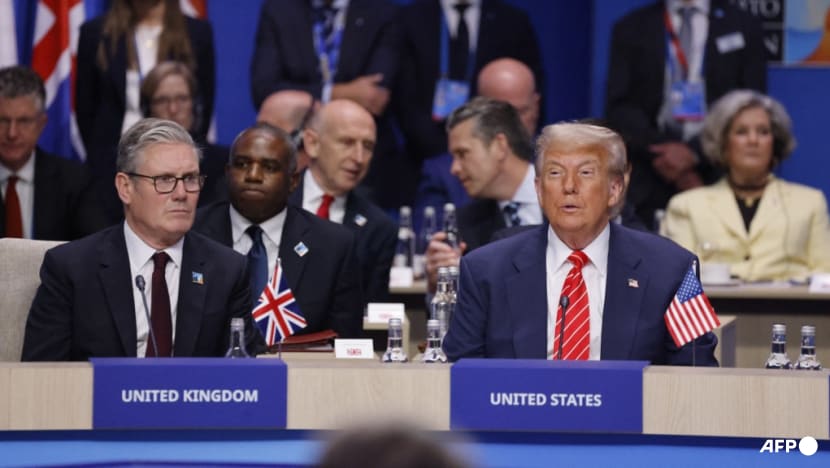Trump says damage from Iran strikes was severe despite 'inconclusive' intelligence

Britain's Prime Minister Keir Starmer (left) and US President Donald Trump attend the North Atlantic Council plenary meeting at the North Atlantic Treaty Organisation (NATO) summit in The Hague on Jun 25, 2025. (Photo: Ludovic MARIN/POOL/AFP)
THE HAGUE: US President Donald Trump said on Wednesday (Jun 25) that the damage to Iranian nuclear sites from American missile strikes over the weekend was severe, even as he acknowledged that the available intelligence on the matter was inconclusive.
His comments followed reports by Reuters and other media outlets on Tuesday revealing that the US Defense Intelligence Agency had assessed that the strikes had set back Iran's nuclear programme by just a few months, despite administration officials saying the programme had been obliterated.
"The intelligence was ... very inconclusive," Trump told reporters while meeting with NATO Secretary General Mark Rutte ahead of a summit in The Hague.
"The intelligence says, 'We don't know, it could have been very severe.' That's what the intelligence says. So I guess that's correct, but I think we can take the 'we don't know'. It was very severe. It was obliteration," Trump added.
Later, during the same round of comments, Trump argued that Iran's nuclear deal had been set back "basically decades, because I don't think they'll ever do it again".
Trump, who arrived in the Netherlands late on Tuesday for NATO's annual leaders' summit, was sitting beside Secretary of State Marco Rubio and Secretary of Defense Pete Hegseth, who both also cast doubt on the reliability of the DIA assessment.
Rubio said the US was opening an investigation into the leak of the DIA report. He also suggested the report's contents had been misrepresented in the media.
At the summit, NATO member states are set to announce their joint intention to raise defence spending to 5 per cent of gross domestic product.
While some countries have suggested that they may not in fact reach that threshold, the Trump administration has pointed to the expected commitment as a significant foreign policy victory.
Trump struck a conciliatory tone towards NATO allies on Wednesday, framing the expected deal on increased defence spending as a "great victory for everyone" at their summit.
"It's a great victory for everybody, I think, and we will be equalised very shortly, and that's the way it has to be," said Trump, as European allies seek to catch up with US spending on defence.
"I've been asking them to go up to 5 per cent for a number of years, and they're going up to 5 per cent... I think that's going to be very big news," he said.














